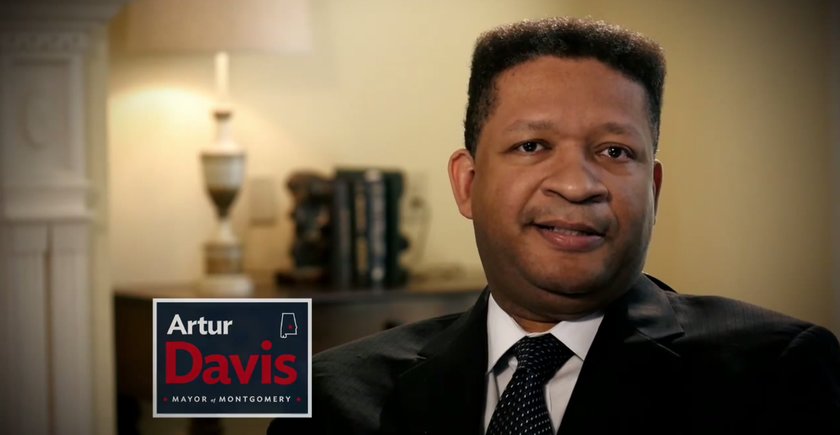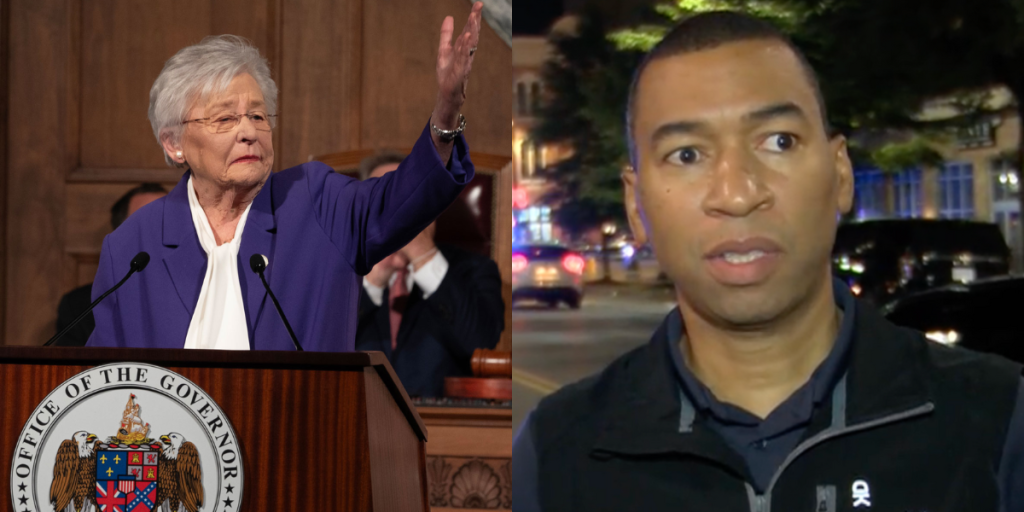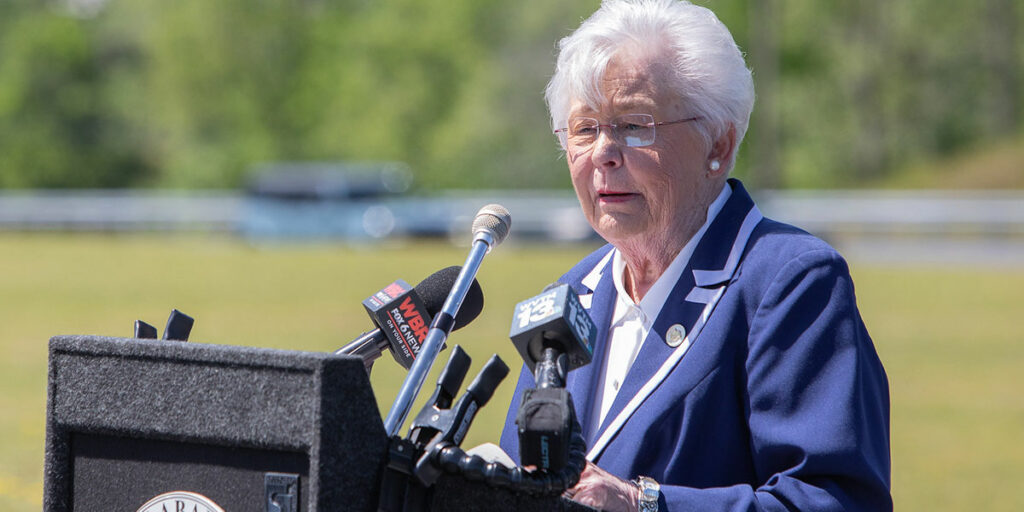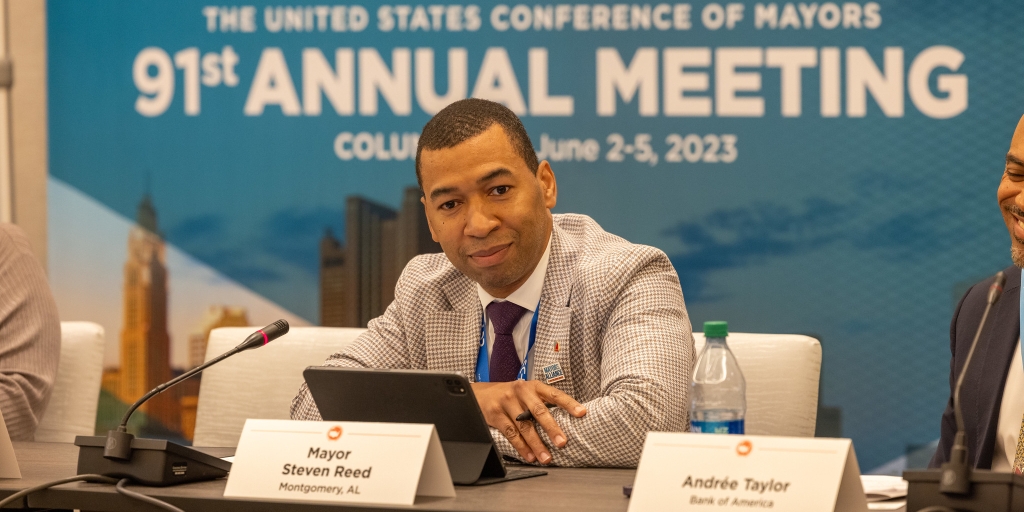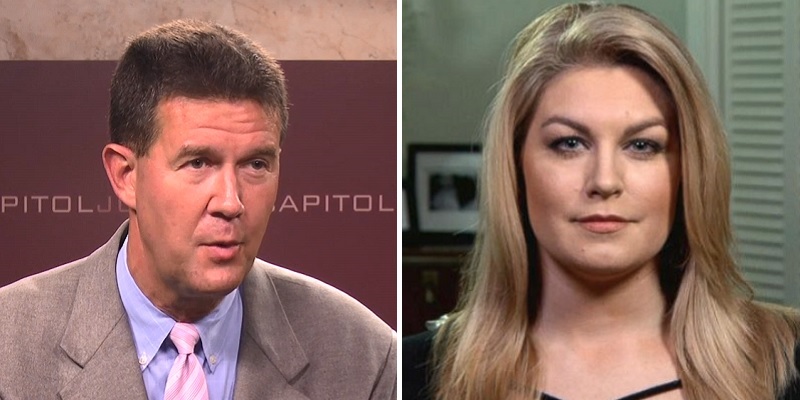Former congressman Artur Davis (D-AL) is running to be Montgomery’s next mayor.
While the election will not occur until August 27 of next year, Davis believes the race, which is expected to feature Montgomery Probate Judge Steven Reed, could present a similar problem as the current gubernatorial race in Georgia, where Republican Secretary of State Brian Kemp is running against former state Rep. Stacey Abrams.
A national controversy has erupted in that race, with Democrats accusing Kemp, who oversees the elections process in his current role, of purging likely Democratic voters from the rolls. Davis is worried that the same type of opportunity for “impropriety,” or at least “the appearance of impropriety,” will exist in the 2019 Montgomery mayoral race, as Reed will oversee the election as probate judge in which he is also expected to be a candidate.
In an exclusive interview with Yellowhammer News, Davis confirmed his own campaign for mayor and called on Reed to recuse himself from overseeing the upcoming election, turning over that responsibility to Secretary of State John Merrill’s office.
Basic tenets of a fair elections process
For Davis, this all comes down to core principles of American representative democracy – that elections should be fair and free, with citizens having trust in the integrity of the process. He also boiled it down to an analogy that should hit home for Alabamians of all stripes.
“As great as Nick Saban is, he doesn’t get to referee the games he plays in,” Davis outlined. “And that’s really what this comes down to here. If Nick Saban doesn’t get to referee games he plays in, then why should a candidate, in effect, get to referee the game he’s playing in?”
Davis also pointed to the situation as an example of potential hypocrisy by Democrats, saying “my guess is some of the same folks assailing Kemp won’t have much to say about Reed trying to referee a game he is playing in.”
What goes into overseeing an election in Montgomery County?
Davis then explained what overseeing an election looks like in reality, specifically when it comes to a county’s probate judge.
“The probate judge runs the election process. And it’s not a passive role. I’ve known Judge Reed for many years, I’ve been to many forums with Judge Reed, and every time I’ve heard Judge Reed describe his role, he stands up and says, ‘I run the elections in Montgomery County.’ That’s accurate – that’s a fact,” Davis said.
He continued, “And what does it mean to run elections in Montgomery County? Not only does it mean that you handle the administrative tasks of having poll workers, manning precincts, making sure the machinery runs properly, not only do you handle the administrative tasks but processing candidate applications and candidates’ qualifying checks, those things frankly don’t tend to involve a lot of subjective judgement. But there’s an element of the process that’s enormously subjective that I don’t think a lot of voters appreciate in Montgomery.”
That under-appreciated, “enormously subjective” duty of the probate judge is verifying the necessary amount of signatures that candidates must get to even be on the ballot.
“A lot of voters are not aware that to get on the ballot in Montgomery, to run for mayor or city council, you have to turn in signatures,” Davis advised. “And for mayor, those signatures have to be a certain percentage of the folks that voted in the last election.”
While that bar was not high in the 2015 mayoral race because of low turnout in 2011, a high turnout in 2015 means a relatively large amount of signatures to get in 2019.
Yet, it is not really the number of signatures, time-consuming as they are, that has Davis worried; it is the fact that Reed’s probate office can subjectively reject any signatures that they want to. In Davis’ experience (he ran for mayor in 2015), this is more than a theoretical problem.
“Guess who is in charge of deciding whether or not signatures are valid? It’s Judge Reed’s staff,” Davis commented. “And I don’t mind telling you, in the last election process, several of us candidates kept getting calls to the probate judge’s office that they had disqualified our signatures. And we had to keep coming back and keep coming back. Well, what if Judge Reed were a candidate and his staff is sitting there evaluating whether or not his opponents are turning in valid signatures? And whether he’s turning in valid signatures? Because he’s not exempt from that process.”
In addition to the probate judge’s office holding the key to ballot access in Montgomery, Davis explained that the office also “has a very important role” that can be subjective when it comes to absentee ballots.
“The probate judge’s office is in charge of making sure absentee ballots are properly filed. Well, guess what? That’s not just an administrative process in Montgomery today. Because of new laws in Alabama, new requirements around voter I.D. and absentee ballots, there’s a subjective process that goes on. As there should be,” Davis said.
He continued, “What this comes down to for me and, I think, a lot of voters and people in this community, can you trust a player in the game to be the referee?”
Reed’s history only compounds the more inherent issues
Davis believes that for many in the Montgomery area, this natural distrust is fueled by the probate office’s behavior under Reed’s leadership. The former congressman opined that things have gone downhill since former Probate Judge Reese McKinney left office.
Specifically, vote totals are now taking conspicuously longer to be reported to the secretary of state’s office on election night since Reed took office, Davis said.
“A lot of us wonder, why did it take two hours for returns in races to come in in Montgomery County? Why does it take longer to count the votes in Montgomery County than it takes to count the votes statewide? Why is it that you have the AP in a position to call statewide races and multiple other contests but you only have eight percent of the vote reporting in Montgomery for two hours? And then all of a sudden, the number magically jumps to 90 percent? That’s something a lot of us wonder about,” Davis outlined.
The problems cannot be chalked down to a lack of resources, Davis advised.
“It’s not like this is some rural backwater,” Davis remarked. “We’re the second largest county in the state. Why is it that Montgomery is the only large county that has not implemented many of Secretary Merrill’s reforms? Why is it that Montgomery continues to have human beings involved in processes that are handled digitally in other big counties?”
These perceived red flags exacerbate the general fairness issues surrounding Reed potentially overseeing an election in which he is also a candidate.
“If we had a smoothly flowing election process in Montgomery, it might be a different story,” Davis added. “You might have more confidence. You might feel, ‘Well, Montgomery’s process is so smooth, mechanical and transparent that it will essentially run itself.’ I certainly don’t have that confidence as a voter.”
More issues that Davis has witnessed with Reed’s probate office include not having nearly enough poll workers for major elections (especially the Jones/Moore U.S. Senate Special Election last December) and registered Democrats – who are not loyalists of the Alabama Democratic Conference (ADC) – facing challenges and even changes to their party registration and eligibility to vote in certain races. Then, there is the very clear example of state Rep. John Knight (D-Montgomery) being told he could not vote in the Democratic Party primary runoff for a state Senate seat this year. While the problem was seemingly resolved after public outcry, Knight was running against the “Reed Machine” in that race, adding to the perception of “impropriety” in the probate office.
Steven Reed’s father is Joe Reed, the infamous, longtime head of the ADC, otherwise known as the “Black Political Caucus of Alabama.” This organization is widely known to wield a stranglehold on Montgomery and statewide Democratic politics, with the ADC most recently flexing its muscles against a failed takeover attempt of the state party by Sen. Doug Jones (D-Mountain Brook).
“You have the probate office calling people in the days after the primary runoff election this July, asking them what primary they voted in. [The probate office] ought to be able to tell you that. I think that’s kind of their job, not the other way around,” Davis said.
He continued, “All of these problems with long lines because we don’t have enough poll workers, these problems with returns, these problems with candidates in races being told they voted in the other primary – look, let’s just say I was born at night but it wasn’t last night.”
Davis believes Reed should announce his office’s recusal from overseeing the mayoral race
If Reed runs for mayor, as he is expected to, Davis stopped short of calling for his resignation as probate judge. However, Davis said that he and his office should be entirely removed from the electoral process for that race.
“He should pick up the phone and call someone who I think he respects and I know I respect – that’s John Merrill,” Davis advised. “And I think he should ask John Merrill to run the election process [in the Montgomery mayoral contest]. There’s a precedent for this – if a district attorney has a conflict in a case, he calls the attorney general to prosecute the case… if there’s a case involving a local judge, all the other judges in the circuit recuse themselves and someone from another area comes in. Not necessarily because the judges would be biased, but because they know that the appearance of impropriety would be there for some people in the community.”
This is another key point that Davis wanted to make. While no one can truly know if impropriety by Reed or his office would exist ahead of the election, the appearance of impropriety would undoubtedly exist. That in and of itself is reason for Reed to recuse himself.
On this, Davis added, “Steven should do the right thing. I like Steven, he’s a nice guy and I’ve known him and his family for a very long time. Seems like a fair-minded person. The fair-minded thing would be to call John Merrill and to ask John Merrill’s office to run the election process and to staff up the election process – to handle the certification of candidates to be on the ballot, to handle the processing of absentee ballots and to handle the vote count on election night.”
Davis is not afraid of the “Reed Machine”
Speaking of the Reed family, Davis has experience running against Joe Reed’s strong-arming organization. And he is looking forward to doing so again.
“I’ve beaten the Reed Machine the last two I’ve run in Montgomery. Governor’s race in 2010, we didn’t have a good night in 2010 but we still beat Joe Reed in Montgomery; Mayor’s race in 2015, the Reed Machine worked very hard for a candidate who came in third… we beat [the Reed candidate] in every single box in Montgomery, beat him in all the black boxes where ADC has influence. Won 11 of the 13 African American boxes in this community despite ADC putting out smear sheets against me and working hard against me and campaigning against me and calling me everything but ‘a child of God.’ I’ve beaten the Reed Machine in two elections in a row,” Davis explained.
The mayoral race should be about substance, not process
Davis said that the next mayor of Montgomery will be elected based on their qualifications and vision for dealing with the city’s very real problems. Davis’ top two platform items center on public education and economic development.
“Our school system has become a disgrace for our children,” Davis emphasized. “Economic development is not where it needs to be in this community… Crime is higher in this community than it needs to be for a city of our size.”
The issue of education is very personal to Davis because his experience growing up in Montgomery’s public education system laid the foundation for his lengthy resume of accomplishments.
“I went to Cloverdale and Jeff Davis and that was good enough for me to be a National Merit Finalist, to make perfect scores on AP exams, to go to Harvard and to be an award-winning student. To be a congressman by the time I was 35 years old – I got the foundation for that from Montgomery public schools,” Davis outlined.
He added, “The reality is, the election next year oughta be a conversation about where Montgomery goes in the future. And that conversation shouldn’t be diverted by questions about whether the process is fair.”
Davis was a Democratic member of Congress from 2003 – 2011. A Montgomery native and graduate of Harvard for undergraduate studies and law school, Davis notably switched his party affiliation to Republican in 2012 and spoke in support of presidential nominee Mitt Romney at the Republican National Convention that year. This came after he was the first congressman outside of Illinois to endorse then-Senator Barack Obama for president in 2007, with Davis giving one of his nomination speeches and serving as one of his national campaign co-chairs that cycle. He later became the only member of the Congressional Black Caucus to vote against Obamacare.
Sean Ross is a staff writer for Yellowhammer News. You can follow him on Twitter @sean_yhn




